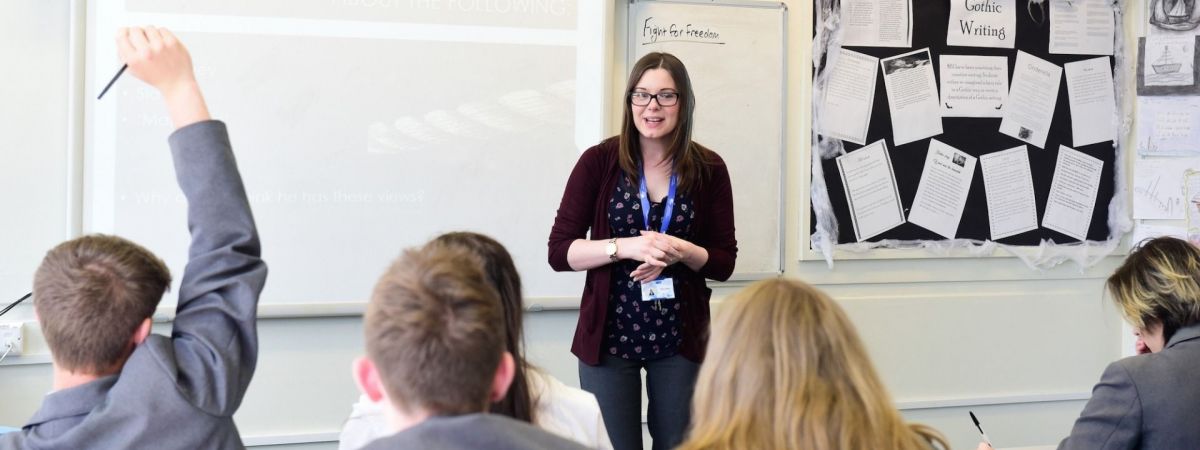A Response to Rachel Sylvester
Our Campaign Manager Mike Burke has written this blog…
This week Rachel Sylvester produced an article for The Times encouraging ministers to tackle knife crime through the method of reducing the number of pupils permanently excluded from school. Whilst well-intentioned, the article is fairly problematic and contains multiple assertions that need to be unpicked.
The first major issue is the classic conflation of correlation and causation: pupils that have been permanently excluded are more likely to be in gangs that cause knife crime, ergo the exclusions are causing a rise in knife attacks.
This is a troubling assertion with even more worrisome implications. It seems more likely that pupils who are extremely disruptive, or endanger others, were not failed by their school, but something much earlier along in their development. Their expulsion from a school is, in most cases, not a cause of troubles to come, but rather another symptom of troubles that were started long ago.
Nonetheless, if we do accept Rachel’s flawed logic, the next steps are still no clearer. Are heads supposed to allow such pupils to continue to disrupt classes, and perhaps even threaten the safety of other children and staff? Even Rachel accepts this cannot be the case, admitting that “head teachers must be able to expel pupils who are impossibly disruptive or are putting other children at risk”. But given the rest of her argument, this seems unconvincing; she is so sure that exclusions are the root cause of major societal problems, so it seems unlikely that she supports heads having the same powers to use them as they do now.
Indeed, the second half of the sentence is a far more telling piece of teacher-bashing: “too many schools are gaming the system to boost their reputations.” On one level, this is fair enough: even one school gaming the system is too many, and any genuine cases of off-rolling should be met with the unequivocal governmental response that they deserve. But she evidently believes that this is fairly widespread, despite the paucity of evidence that off-rolling is anything more than a very serious, but very rare infraction of the law (indeed, Amanda Spielman recently said to the education select committee that just three Ofsted reports have identified the practice).
Rachel does raise some good points about alternative provision, and we would fully support moves to help improve that aspect of our sector. It is vital that excluded pupils have a place to go to turn it around, and some of the finest AP schools do this incredibly well; the very best AP shows that permanent exclusions can help pupils get their head on straight after they realise that their actions have consequences. On a personal level, I would support schools being still accountable for a pupil’s results after they were excluded, until they return to a mainstream school; not only would this remove one of the potential temptations for off-rolling, but it would encourage schools to take a much bigger interest in AP, helping to ensure that there is better provision in their area.
But just as Rachel makes a good point, she drops another clanger. She quotes Robert Halfon, who is equally misguided on this issue, with the line that rising exclusions are “the greatest social injustice” in this country. Of course, we have no idea what a ‘natural’ level of exclusions is; we’d all love there to never be the need for one, but that’s not living in the real world.
Exclusions are rising because the government have finally given heads the tools to take control of their schools, free of local authorities who want to keep exclusions artificially low or independent review panels that know little of the case at hand. We don’t suddenly have a new generation of sadistic headteachers who just want to ruin random children’s life chances; they want as many of the pupils in their care as possible to succeed, and sometimes that can’t happen if a disruptive pupil isn’t removed. To be honest, I think the greater social injustice would be letting those children continue to disrupt the education of the vast majority, who just want to get on with their work in peace.
Rachel makes one last unfair point – accusing Damian Hinds of disinterest when in reality he has pledged to wait for the Timpson review before making a decision – but the damage has already been done. Rachel has a genuine wish to help the kids who need it most, but her backwards understanding of the issues at hand mean that her article does more harm than help. If Rachel and other like-minded thinkers want to help vulnerable pupils, they must understand this, and attempt to work with schools, rather than castigate them in the papers for doing their job.
